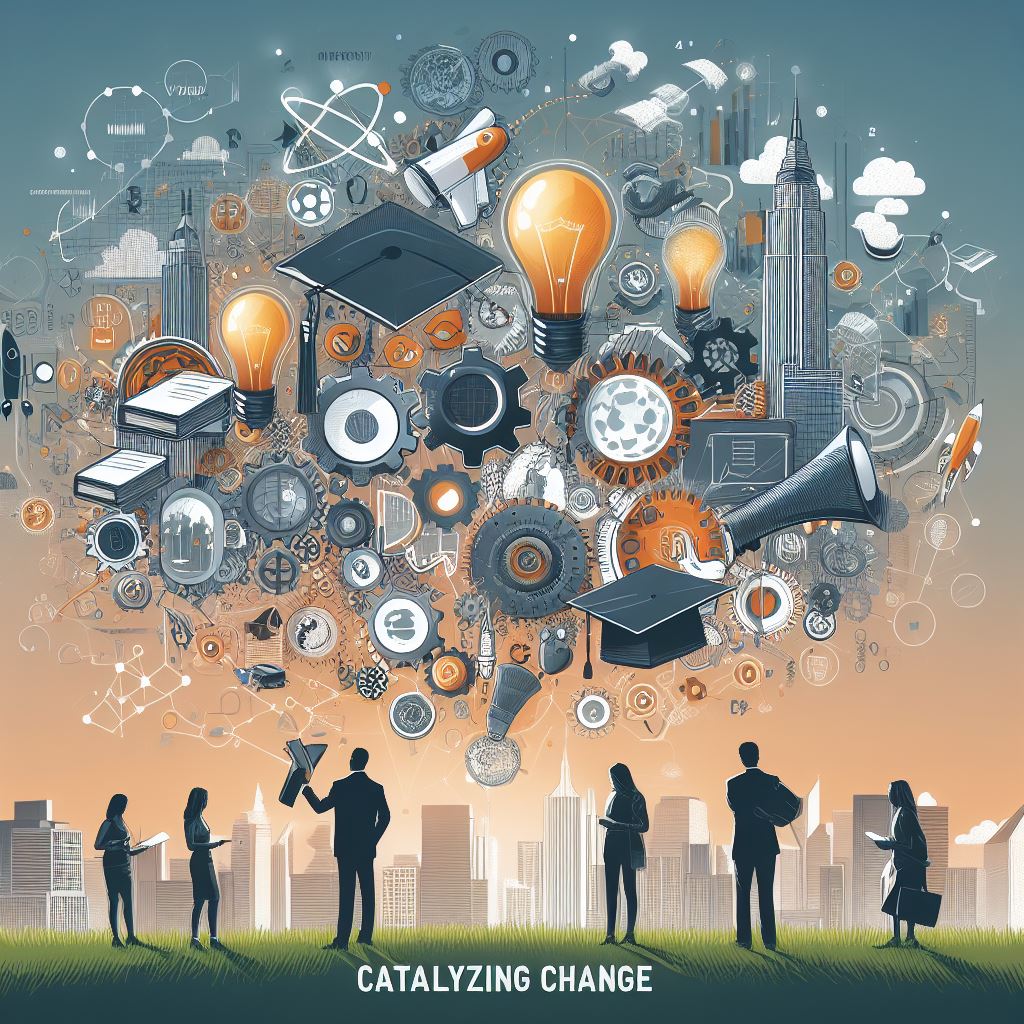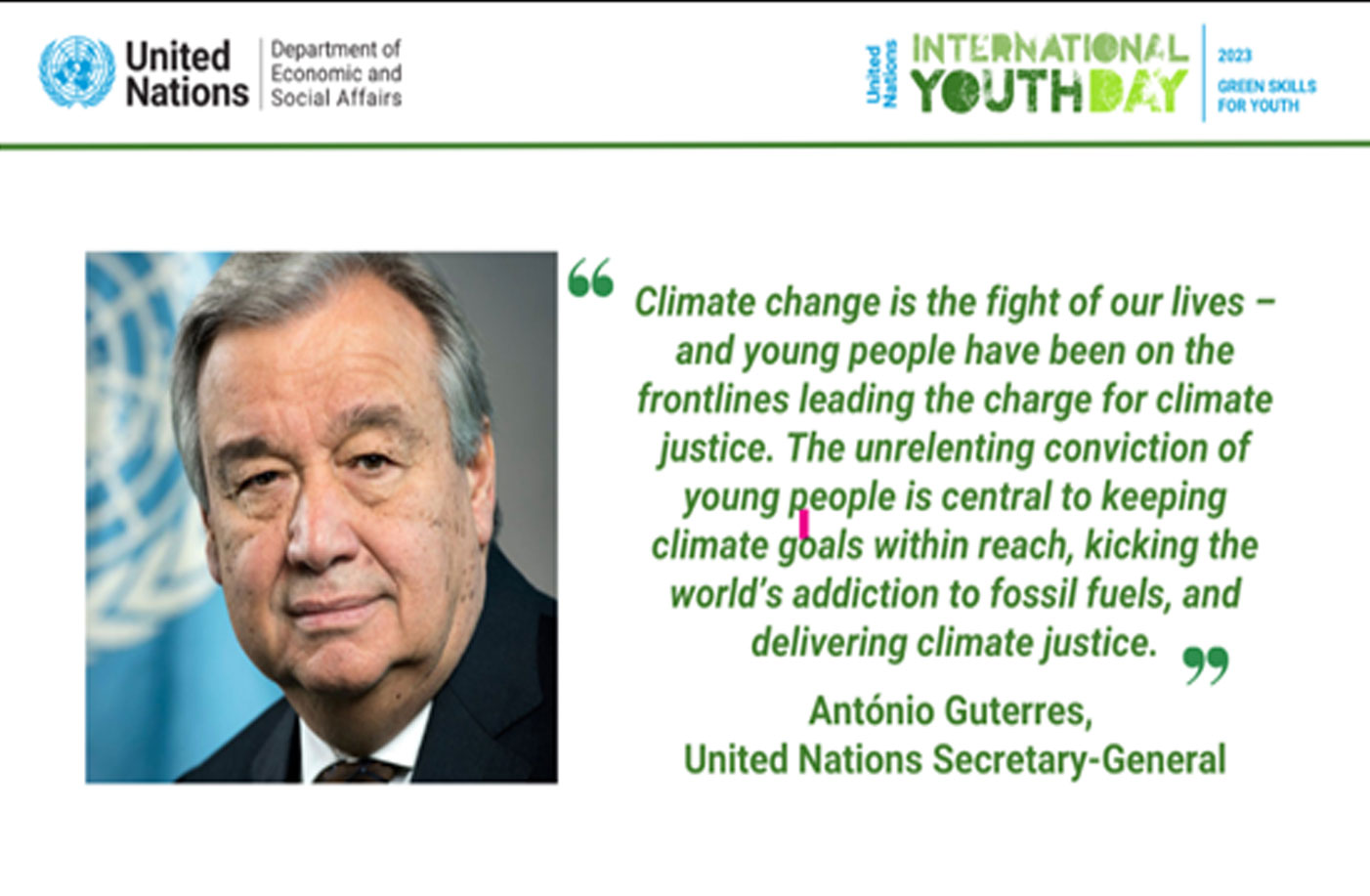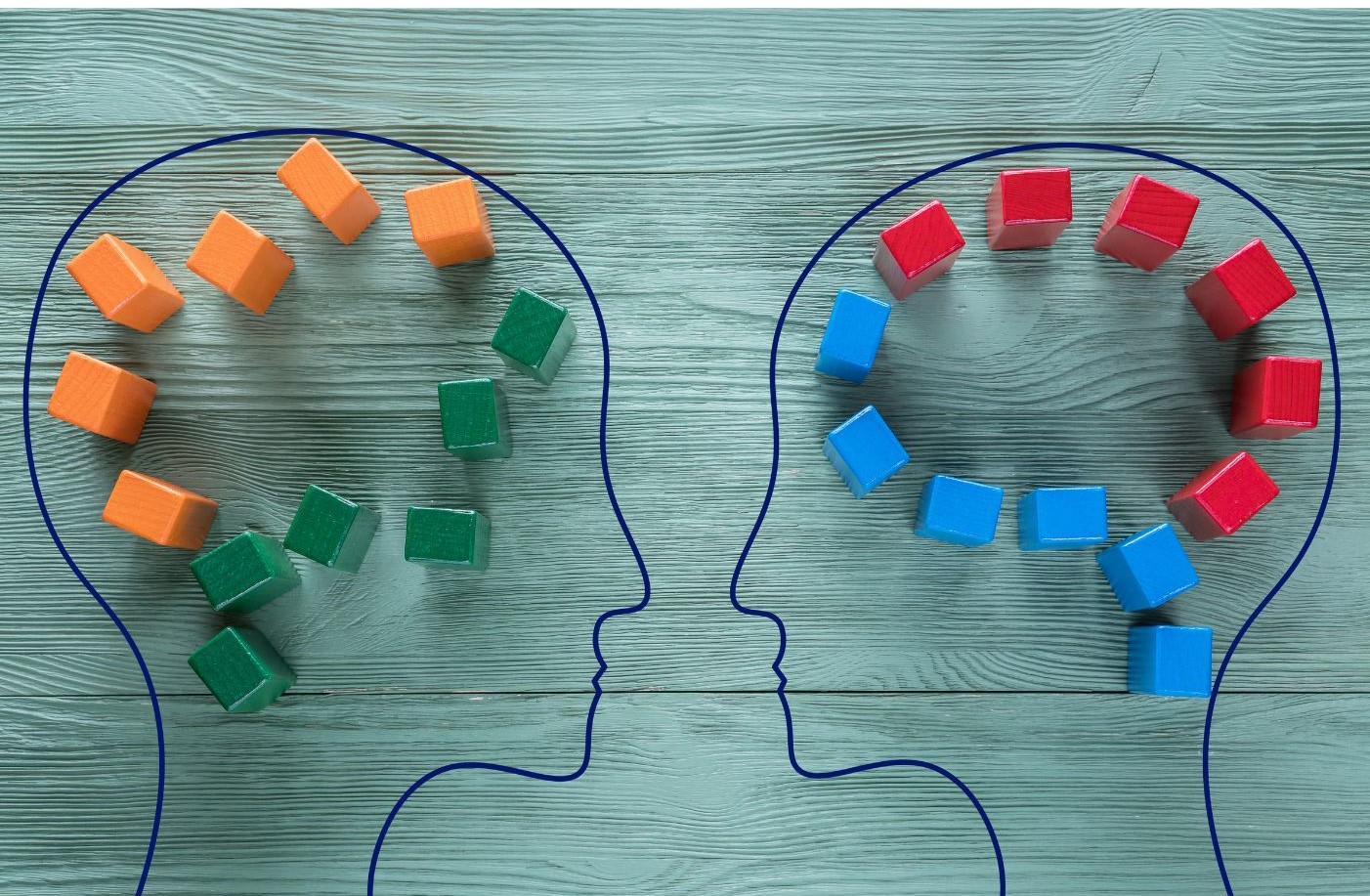“Catalyzing Change: A Comprehensive Exploration of Higher Education’s Role in Fostering Competencies for Innovation in the Face of Climate Change, Digital Transformation, and Post-Pandemic Challenges”
Summary of “Education and innovation for the digital and green transitions: How higher education can support teachers and school leaders”

This comprehensive report delves into the critical importance of addressing the multifaceted challenges posed by climate change, digital divides, and the aftermath of the COVID-19 pandemic. Initiated by the collaborative efforts of the European Commission and OECD through the Education and Innovation Practice Community (EIPC), the report places a spotlight on higher education’s pivotal role in cultivating innovative talent.
A central theme is the urgency for education systems to equip citizens for the evolving landscapes of digital and green transitions by fostering competencies for innovation. These competencies encompass a spectrum of knowledge areas such as science, sustainability, and digital literacy, coupled with essential skills like social, digital, and cognitive abilities. The report accentuates the significance of instilling attitudes and values aligned with environmental consciousness and digital citizenship.
Higher education emerges as a linchpin in supporting educators and school leaders in adapting to digital and green transitions. The report advocates a redesign of teacher education programs within higher education institutions (HEIs) to better prepare educators. Collaborations between higher education and schools, coupled with effective school curricula development, are underscored as indispensable elements.
Notable challenges faced by school educators are brought to light, emphasizing the need for pedagogies that support innovation competence development. Teacher readiness, particularly in digital competencies and climate change literacy, is assessed, revealing gaps in preparedness and support. The report urges investments in teachers’ competence development and highlights the crucial role of research competencies among educators.
In conclusion, the report stresses the pivotal role of higher education in supporting effective teaching of competencies for innovation. Addressing challenges in adopting innovative pedagogies is identified as crucial for adequately preparing students for the digital and green transitions.
The challenges faced by school leaders in fostering a climate conducive to developing competencies for innovation are outlined, emphasizing the essential role of effective school leadership. The literature underscores the imperative for school leaders to empower all stakeholders, including teachers, learners, parents, and the wider community, to actively contribute to innovative learning environments. The report identifies a gap in professional learning opportunities for school leaders and proposes that HEIs can play a vital role in bridging this divide.
The mechanisms through which HEIs contribute to this goal are elucidated, encompassing the integration of competencies for innovation into teacher education curricula, collaborative design, delivery, and evaluation of initial teacher education, and professional development of teacher educators. The report emphasizes the need for investments in the continuing professional learning of school leaders, alongside teachers, to enhance the overall effectiveness of education systems. The mechanisms proposed aim to foster a school culture conducive to innovation among students.

The subsequent section focuses on three mechanisms employed by HEIs to develop initial teacher education programs fostering competencies for innovation. These mechanisms involve the integration of competencies into ITE curricula, collaborative design, delivery, and evaluation of ITE with schools, and the professional development of teacher educators. The report highlights the limited integration of competencies, particularly research, digital, and green competencies, into ITE curricula. It suggests that frameworks such as SELFIE and DigCompEdu, designed to guide integration, have had limited impact due to their non-mandatory nature. The report concludes by recommending selective adoption of frameworks and a recent Australian proposal to establish “core content” in ITE programs.
Furthermore, the report introduces three competence frameworks targeting specific skills for prospective educators: the Research Competence Framework, the Digital Competence Framework, and the Education for Sustainable Development Framework. It then transitions to discuss mechanisms for preparing teachers to teach competencies for innovation, including joint design, delivery, and evaluation of ITE; concurrent teacher education programs; and supporting the professional development of teacher educators. Initiatives in different countries, such as the “University schools” pilot in Norway and the School-University Partnerships Initiative in the UK, are presented as examples.
The subsequent section delves into the challenges and opportunities related to engaging teacher educators in professional development and research. Challenges include limited data on teacher educators’ engagement, time constraints, and a disconnection from professional practice. The report suggests incentivizing professional development through awards and competency requirements. Opportunities through competencies for innovation in ITE are discussed, emphasizing interdisciplinary and research-based approaches. National centers of excellence for peer learning and collaboration are recognized, along with the importance of quality assurance in ITE.
The final segment focuses on Mechanism 5, emphasizing the importance of building capacity for inquiry, self-evaluation, and data analysis among school leaders. Seven key components for schools to become “Schools as Learning Organisations” are outlined, with HEIs providing valuable support for self-evaluation and data analysis. Collaborations between school administration and higher education experts, such as the collaboration in the Netherlands detailed in Box 4, aim to align evaluation practices with scientific research.
The report concludes by outlining key findings and proposing options for further policy and practice development. Five options are presented, focusing on integrating competencies for innovation into teacher education, establishing partnerships, supporting teacher educators’ professional development, offering upskilling opportunities, and engaging higher education experts in school self-evaluation and external quality assurance. The report serves as a comprehensive guide for stakeholders in education to navigate the complexities of fostering competencies for innovation in a rapidly evolving educational landscape.

Nidhi is currently working as the Innovation Manager in Savitribai Phule Pune University under the EDUREFORM Project. She likes to read and write about the topics related to Education, intersectionality and social justice.




